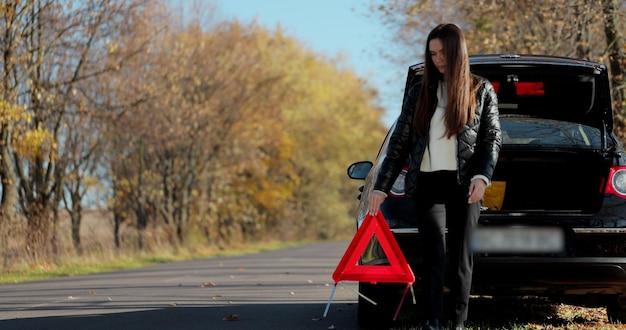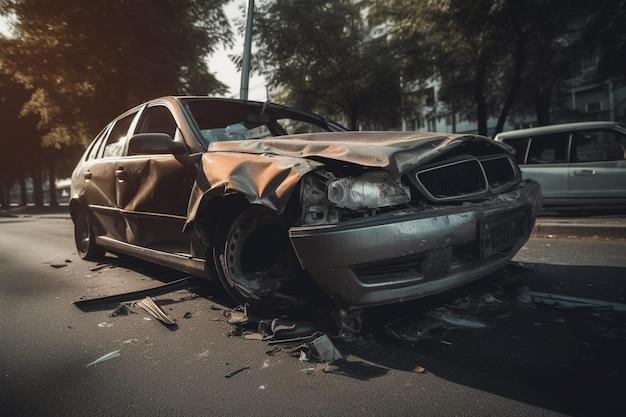Car accidents can be nerve-wracking and often leave people with personal injuries and financial damages. It’s frustrating to deal with the aftermath of an accident that wasn’t your fault. But what happens when the person responsible for the accident files a personal injury lawsuit against you? This is where counter suing comes into play.
In this blog post, we will dive into the topic of counter suing in a car accident case. We will discuss what a counterclaim is in a lawsuit and its benefits. We will also explore whether you can counter sue someone who has sued you for a car accident and what to do if you’re facing a personal injury claim in California.
You’ll learn about the counterclaim template, how to file a counterclaim, and the process involved in a counterclaim. We’ll also answer common questions like whether you can counter sue in small claims court and what kind of damages you can sue for.
If you are facing a personal injury claim or have been sued by someone for a car accident, this blog post is for you. So, let’s dive in and learn everything you need to know about counter suing after a car accident.
Counter Suing After a Car Accident
Car accidents can be a life-altering event, leaving the victim with property damage, medical bills, and lost wages. In such cases, the party at fault is usually asked to pay for the damages. But what happens if you are the one being sued? Can you counter-sue the other party?
The answer is yes, you can counter-sue after a car accident. If the other party was at fault, you can sue them for the damage they caused, including any medical bills, lost wages, and property damage. However, counter-suing should not be your first option. You should first try to work with your insurance company to resolve the issue.
When to Consider Counter-Suing
If the accident was not your fault and the other party’s insurance agent refuses to pay for your damages, you should consider taking legal action. At this point, counter-suing might be your best option.
To counter-sue, you need to prove that the other party was at fault for the accident. This usually involves gathering evidence, such as police reports, eyewitness accounts, and medical records. You will also need to hire a lawyer to represent you in court.
The Benefits of Counter-Suing
Counter-suing can be beneficial for several reasons. First, it can help you recover the costs for the damages you have suffered. Second, it can help you avoid paying for damages that were not your fault. And third, it can help you hold the other party accountable for their actions.
In addition, counter-suing can also help prevent the other party from suing you. By filing a counter-suit, you can show the other party that you are willing to fight back and that you are not to blame for the accident. This can help deter them from pursuing further legal action against you.
In summary, counter-suing after a car accident is a viable option if the other party was at fault and their insurance refuses to pay for your damages. However, it is important to gather evidence, hire a lawyer, and work with your insurance company before pursuing legal action. By doing so, you can protect yourself from any further legal repercussions and hold the other party accountable for their actions.
Counterclaim Template
If you have been sued for a car accident, you may want to consider filing a counterclaim. A counterclaim is a legal action that is filed by a defendant against the plaintiff in response to the plaintiff’s claim. It is a way for a defendant to seek damages from the plaintiff for any harm or injury that may have been caused by the plaintiff’s actions.
When to File a Counterclaim
If you have been involved in a car accident and have been sued by the other party, you may want to consider filing a counterclaim if you believe that you have been wrongly accused or if you were not at fault. A counterclaim can be filed for any number of reasons, including:
- Negligence: if the other party was negligent and caused the accident, you may be able to file a counterclaim.
- Contributory negligence: if both parties contributed to the accident, you may be able to file a counterclaim against the other party.
- Breach of contract: if you had a contract with the other party, and they breached it, you may be able to file a counterclaim.
Preparing a Counterclaim
Before you file a counterclaim, you should consult with an attorney to determine if it is the best course of action. Your attorney can help you prepare the counterclaim and ensure that all necessary documentation is filed with the court.
The counterclaim should contain the following:
- A description of the accident and your version of events.
- A statement of the legal basis for your claim.
- A demand for damages.
Filing a counterclaim can be a complicated process, and it is important to have an attorney who is knowledgeable in this area of law to help you through the process. If you have been involved in a car accident and have been sued by the other party, consider filing a counterclaim to seek compensation for any damages you may have suffered.
Counter Suing for a Personal Injury Claim
If another driver was negligent and caused a car accident that resulted in your injury, you may be entitled to compensation through a personal injury claim. However, what happens if the other party decides to sue you instead? Can you counter sue them for your injuries?
What is a Counter Claim
A counter claim is when the defendant in a lawsuit brings a legal claim against the plaintiff. In a car accident case, the defendant (the person at fault for the accident) could counter sue the plaintiff for any damages caused during the accident. This is often done in situations where the defendant feels the plaintiff is making a false or exaggerated claim.
When Can You Counter Sue
In a personal injury case, you are entitled to counter sue the other party if they were negligent and caused the accident. This means that you can claim compensation for any injuries you sustained due to their negligence. However, it is essential to have evidence to support your counter claim. This includes medical records, witness statements, and police reports.
Should You Counter Sue
Deciding whether to counter sue or not can be a difficult decision. It is essential to consider the potential cost of counter suing, including legal fees and the time it will take to resolve your case. Additionally, counter suing could harm your chances of settling your personal injury claim. It is recommended that you consult with an experienced personal injury lawyer before deciding to counter sue.
Counter suing for a personal injury claim can be a complicated and time-consuming process. While it is possible to counter sue in some situations, it is essential to carefully consider the potential risks and benefits before making a decision. If you need legal advice for your personal injury claim, it is recommended that you speak with an experienced attorney who can provide guidance and support throughout the process.
What is a Counterclaim in a Lawsuit
In a lawsuit, a counterclaim is a legal action taken by the defendant against the plaintiff. It’s a claim that the defendant brings against the plaintiff in response to the plaintiff’s original claim.
The Purpose of a Counterclaim
The primary purpose of a counterclaim is to offset the plaintiff’s claim, either in whole or in part. This means that the defendant is seeking relief from the court, just as the plaintiff is. The relief requested by the defendant is often the opposite of what the plaintiff requested, and it may involve damages or other legal remedies.
The Criteria for Filing a Counterclaim
To file a counterclaim, the defendant must meet a few criteria. First, the counterclaim must be relevant to the specific lawsuit in question. That means it must relate to the same set of facts and circumstances as the plaintiff’s claim. Additionally, the counterclaim must be within the court’s jurisdiction and must not be barred by the statute of limitations.
The Importance of a Counterclaim
A counterclaim can be an essential tool in a defendant’s legal defense. By filing a counterclaim, the defendant can take an active role in the litigation process, rather than simply being reactive to the plaintiff’s actions. A counterclaim can also be used strategically to gain leverage in settlement negotiations.
In summary, a counterclaim is a legal action taken by the defendant in response to the plaintiff’s original claim. It’s an important tool for the defendant to seek relief from the court and to actively participate in the litigation process. In some cases, a counterclaim can even help the defendant gain leverage in settlement negotiations.
Can I Counter Sue Someone for Suing Me
If someone sues you over a car accident, you might be wondering if you can counter sue them. To put it simply, the answer is yes, but there are some things you need to keep in mind.
Valid Reasons to Counter Sue
First of all, you need a valid reason to counter sue. You can’t just do it because you’re angry or want to get revenge. You need to have a legitimate legal claim against the person suing you. For example, if the person suing you was also at fault for the accident, you might have grounds to counter sue them for damages.
Time and Expense
Counter suing can be a time-consuming and expensive process. You will need to hire an attorney, gather evidence, and prepare your case. Be prepared to invest a lot of time and money into the process.
Outcome
Another important thing to consider is the outcome of your counter suit. Even if you win, you may only be awarded a small amount of money. This means that the time and expense you put into the process might not be worth it in the end.
If you’re thinking about counter suing someone who has sued you over a car accident, make sure you have a valid legal claim, are prepared to invest a lot of time and money, and understand the possible outcomes. It’s not a decision to be taken lightly, so be sure to weigh the pros and cons before taking any action.
Can You Counter Sue in Small Claims Court
If you’re involved in a car accident and you’re not at fault, you may be wondering if you can counter-sue the other driver in small claims court. The short answer is yes, you can sue the other driver for damages in small claims court, but there are some important things you need to know before you do.
What is Small Claims Court
Small claims court is a court that is designed to handle disputes between individuals or businesses where the amount of money involved is relatively small. The maximum amount that can be claimed varies from state to state but is typically between $3,000 and $10,000.
Can You Counter Sue in Small Claims Court
Yes, you can counter-sue in small claims court. If the other driver is suing you for damages, you can file a counter-claim against the other driver for the damages you sustained in the accident. However, it’s important to note that you can only sue for damages that are directly related to the car accident.
How to File a Counter-Suit
To file a counter-suit in small claims court, you need to fill out the appropriate paperwork and pay the filing fee. You will need to provide evidence to support your claim, such as witness statements, photos of the accident scene, and repair bills.
The Benefits of Counter-Suing
Counter-suing can be a beneficial way to protect yourself in a car accident case. By filing a counter-claim, you can ensure that you’re not held responsible for damages that were not your fault. You can also potentially recover damages that you otherwise would not have been able to.
In conclusion, if you’re involved in a car accident and you’re not at fault, you can counter-sue the other driver in small claims court. However, it’s important to do so with proper evidence and understanding of the process. Filing a counter-claim can protect your rights and potentially recover damages for your losses.
What to Do if Someone Sues You for a Car Accident in California
Getting sued can be a stressful and overwhelming experience. If you’re facing a lawsuit after a car accident in California, there are a few things you can do to protect yourself.
1. Don’t Panic
First and foremost, don’t panic. Getting sued doesn’t mean you’re automatically guilty or liable for the accident. Take a deep breath and try to stay calm.
2. Contact Your Insurance Company
The next step is to contact your insurance company. Most insurance policies include coverage for legal expenses, so your insurance company will likely provide an attorney to represent you in court. Make sure you give your insurance company all the necessary information about the accident, including any police reports or witness statements.
3. Gather Evidence
If you haven’t already, start gathering evidence related to the accident. This may include photographs of the scene, witness statements, and any relevant medical records. You’ll also want to keep any communication related to the lawsuit, including emails or letters from the other party’s attorney.
4. Consult with an Attorney
Even if your insurance company provides an attorney, it’s a good idea to consult with your own attorney as well. Your attorney can help you understand the legal process and ensure your rights are protected. They can also advise you on whether it’s better to settle the case out of court or move forward with a trial.
5. Stay Organized
Finally, it’s important to stay organized throughout the legal process. Keep all documents related to the lawsuit in one place, and make sure you understand any deadlines or court dates.
In conclusion, getting sued after a car accident is never pleasant, but there are steps you can take to protect yourself. Stay calm, contact your insurance company, gather evidence, consult with an attorney, and stay organized. By following these tips, you can navigate the legal process with confidence.



